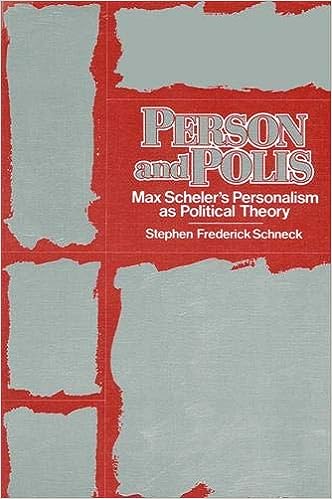
Schneck, Person and Polis
“The supreme despair,” wrote Kierkegaard, “is not to feel desperate.”
One can no longer tell what man is, and as we watch him today undergoing such astonishing transformations, some think there is no such thing as human nature. For some people this idea becomes translated into “everything is possible for man,” and in that they find some hope; for others, “everything is permissible to man,” and with that they abandon all restraint; for others, finally, “everything is permissible against man,” and with that we have arrived at Buchenwald. All the games that might divert us from our disarray have lost their savor, or have been indulged in to satiety. … The religious lunacy which worships the God of philosophers and bankers would indeed justify us in proclaiming that God is dead, if indeed that idol were he. Could we only have a little respite from the wars, to carry on with our technical miracles, then, glutted with comfort, we should then be able to declare that happiness was dead. Another fourteenth century, as it were, crumbling away before our eyes: the time for “a second Renaissance” is at hand.
Emmanuel Mounier
Personalism
Download
Schneck_Person and Polis.pdf
Schneck_Person and Polis.txt
Schneck_Person and Polis.html
Schneck_Person and Polis.jpg



